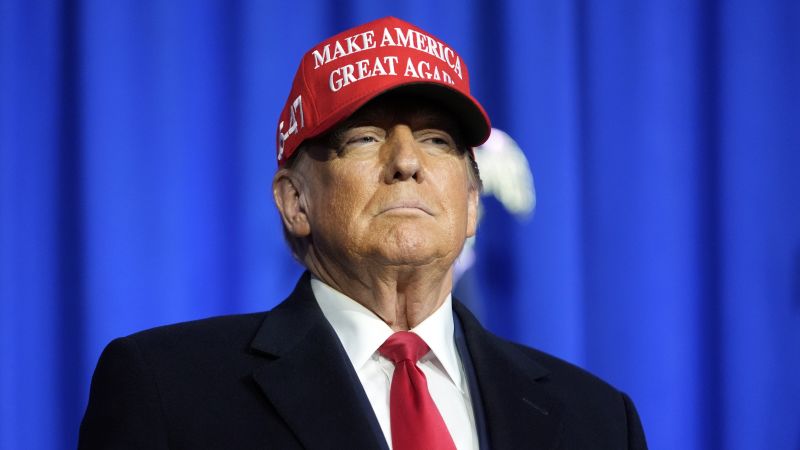Former President Donald Trump, known as “Tariff Man,” has indicated that he will pursue an aggressive trade strategy if re-elected in November. He has proposed imposing a 10% across-the-board tariff on imports, a 60% tariff on imports from China, and a 100% tariff on foreign cars, potentially sparking a new trade war. Economists warn that these policies could harm the US economy by increasing inflation, reducing jobs, slowing growth, and alarming investors, potentially leading to a recession.
Trump’s proposed tariffs could result in the loss of 675,000 jobs, a 0.6% decline in GDP, and a 0.4% increase in the unemployment rate, according to projections from Moody’s. Inflation could rise by 0.7%, impacting families and the economy. The direct impact of higher tariffs on GDP is likely to be negative, as higher prices could outweigh the decline in the trade deficit. There could also be indirect effects such as financial conditions tightening, decreased business sentiment, and higher trade policy uncertainty.
While concerns about China’s trade practices are legitimate, some worry that Trump’s proposed tariffs could have significant negative consequences for the economy. Former Treasury Secretary Janet Yellen has highlighted China’s overcapacity as a concern. The Trump campaign touts his economic accomplishments and pledges to prioritize American jobs and growth if he returns to the White House. In response, the Biden campaign criticizes Trump’s economic record but does not directly address his trade plans, citing job creation under President Biden’s leadership.
Experts caution that Trump has significant authority to implement trade policies unilaterally, potentially escalating tensions with China and other nations. The current economic environment is different from 2016, with higher inflation and lingering concerns about the Federal Reserve’s ability to lower interest rates. Implementing new tariffs now could further exacerbate inflation and borrowing costs, posing risks to consumers and businesses.
Experts warn that new tariffs could act as a tax on US consumers, particularly affecting retailers like Target and Walmart. The levies could escalate into a destabilizing effect on financial markets, prompting retaliation from China and other trading partners. While Trump claims that other nations pay for US tariffs, experts argue that American consumers and businesses bear the costs. The political environment has made tariffs a bipartisan strategy, despite their potential negative impact on the economy.
Although even the Biden administration has maintained some tariffs on China, there is little movement to remove them. Lowering tariffs could benefit consumers, but the current political climate does not support such actions. Despite the negative implications of tariffs on the economy, the appeal of these policies in rhetoric remains strong. Ultimately, the decision-makers must consider the potential consequences of escalating trade tensions and the impact on businesses, consumers, and the overall economy.


